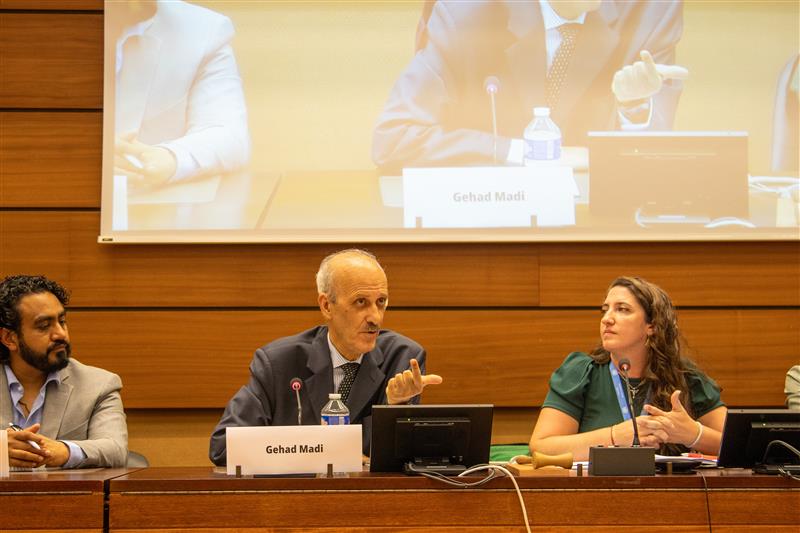Across the Americas, migration is increasingly met with criminalization instead of protection. Militarized borders, mass deportations, and arbitrary detention have supplanted rights-based approaches. These escalating trends have been reinforced since the Trump administration took office in January and were at the center of a side event organized by Franciscans International during the 59th session of the Human Rights Council in Geneva.
“The criminalization of migration is the norm, not the exception,” said Jesús Vélez Loor, an Ecuadorian national who was arrested in Panama in 2002 and sentenced to two years in prison for having entered the country irregularly, before being deported. In detention, he endured torture, cruel and degrading treatment, and did not have access to a lawyer. In 2010, the Inter-American Court of Human Rights ruled that Panama had violated the rights of Jesús Vélez Loor and ordered reparations. While he received monetary compensation, key measures – such as investigating his torture and implementing structural reforms – remain unfulfilled.
Jesús’s experience is far from unique and highlights a broader regional trend where migration increasingly invites punitive responses.
“It is one of the most disturbing trends observed during my mandate,” said UN Special Rapporteur on the human rights of migrants Gehad Madi, who spoke during the event. During his recent visit to Panama, Madi reported a heightened military and security presence across the Darién Gap, including closed jungle trails, razor wire, and army checkpoints. “These policies do not stop migration. They only increase suffering,” he said.
Another major concern that was highlighted is the increasing externalization of migration processes, where countries pay other States to receive migrants on their behalf. A notorious example is the agreement between the United States and El Salvador to deport migrants to CECOT, a high-security prison originally designed for gang members.
Jessica Vosburgh, representing the Center for Constitutional Rights, described the case of a Venezuelan man who, after seeking asylum in the US, was deported to El Salvador, without being able to consult a lawyer. “He is now detained with no contact with his family. We’re trying to determine whether he is under US or Salvadoran custody.”
“This is the most extreme example”, says Madi about the agreement with El Salvador, “but it shows a trend spreading across the Americas.”
In February 2025, two hundred people from various countries, including Russia, Vietnam, and India, were arbitrarily detained in Costa Rica after being deported from the United States. Held in the Temporary Migrant Care Center (CATEM) in Corredores, their passports were confiscated, and they were kept without access to proper information, legal counsel, or interpretation. Many did not understand their legal status or the reason for their detention. After legal challenges, a Costa Rican court ordered their release this June.
In this increasingly hostile context and rhetoric against migrants, many abandon their journey to the United States and attempt to return home. However, they often find this impossible. “There is a reverse movement in migration,” Madi observed. “Migrants are now moving south. But, trapped between borders, they are unable to return to their country of origin.” Stranded at border zones, they are frequently left without food, shelter, legal assistance, or interpretation. In the absence of humanitarian support, “their situation risks becoming invisible to the international community.”
RFM Colombia launches new publication
Contributing to a broader reflection on the many challenges faced by migrants and refugees in the Americas, FI hosted two representatives from the Red Franciscana para Migrantes (RFM) in Colombia to share information on the situation of Venezuelan migrants based in Colombia and the Franciscan efforts to support them through a “culture of encounter.”
As part of their advocacy, the RFM Colombia presented a new publication that, based on extensive community interviews, documents discrimination pertaining to healthcare, education, and protection. It also highlights the limitations of Colombia’s Temporary Protection Statute and calls for stronger institutional coordination and accountability.

